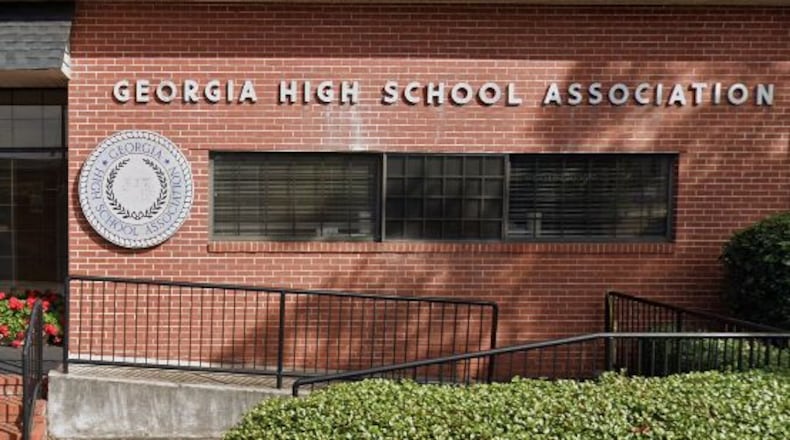The GHSA will decide next month how to classify private schools, possibly having them compete in their own state playoffs starting in 2022-23. They already do that in Class A.
If that happens, the GHSA will become the fourth state high school association in the South to separate public and private schools for all championships. Louisiana, Tennessee and Virginia already do.
In a counterproposal, Georgia’s nine largest private schools want the GHSA to join Alabama and Arkansas as states that use points systems to classify individual private-school sports teams based on performance. Under that plan, a private school’s football team might play in Class 4A while its girls tennis team competes in 6A. North Carolina also considers previous success in classifying.
Other Southern states aren’t so troubled by private schools, allowing them to compete with public schools for state titles in whatever classification their enrollment dictates.
Below is a state-by-state look at how Southern high school associations handle public and private schools.
*Alabama applies a 1.35 enrollment multiplier to private schools. In addition, Alabama adopted a sports-specific “competitive balance factor” in 2019 that places individual sports teams into higher or lower classifications based on their performance the previous two academic years.
*Arkansas, following Alabama’s example, just approved a “competitive equity factor” to classify private schools based on their track record. The decision warded off legislative threats to separate public and private schools. Private schools are required to play one class higher than their enrollment. Unlike Alabama, Arkansas’ reclass cycle is four years instead of two.
*Florida classifies based entirely on enrollment, with no multiplier for private schools, but does reserve Class 1A for rural public schools with enrollment of 600 or less. Public and private schools play for the same championships in the other seven classes.
*Georgia in 2012 began holding separate public and private state championships for Class A schools (enrollment of about 550 or less) and left the larger private schools in higher classes. Out-of-district enrollment multipliers apply to all schools but are targeted toward private schools, causing some to be placed one or two classifications higher.
*Kentucky treats public and private schools the same, with no enrollment multipliers. Classifications exist only in football, cross country and track and field. For other sports, there is one Hoosiers-style state tournament or meet for all schools.
*Louisiana has five classifications for public schools and four divisions for private schools. Public and private schools compete against each other in the regular season but against only their own in state championships.
*Mississippi has only 12 private schools, and they compete with public schools without enrollment multipliers in six football classifications. Many smaller private schools play in the multi-state Midsouth Association of Independent Schools.
*North Carolina did something new this year, classifying based on not only enrollment, which counted 50%, but also each school’s record in all sports over the previous cycle (25%) and each school’s percentage of students on government assistance (25%). Unlike in Alabama and Arkansas, North Carolina’s schools must remain in the same class for all sports. The rules also apply to all schools, not just private ones. The state legislature nearly took over the high school association this year, meaning it’s newsworthy that a bill introduced this week would require that reclassification be based purely on enrollment.
*South Carolina has five classifications based entirely on enrollment. The South Carolina High School League has only four private-school members.
*Tennessee approved a total split between public- and private-school championships starting with the 2019-20 academic year. Public schools complete in Division I, which has six classifications. Private schools complete in Division 2, which has three classifications. Public and private schools can compete against each other in the regular season but not for state championships.
*Virginia has separate associations for public and private schools. Their teams can compete against each other in the regular season, but they stage separate championships. The Virginia High School League allows private schools as members if they agree to a boundary in which all students’ parents must live, similar to public schools. Only one private school has joined.
Produced by Georgia High School Football Daily, a free e-mail newsletter. To join the mailing list, click here.
About the Author
The Latest
Featured

